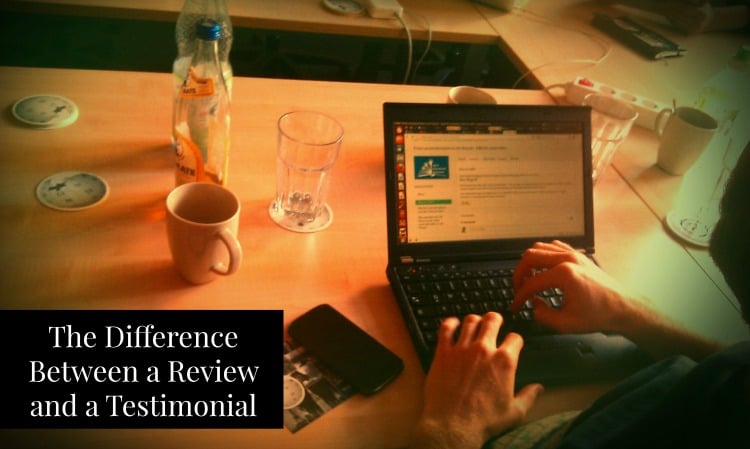Choosing a Web development firm is an important decision for any business, but especially for small and mid-sized companies. Whether the Web site will be a  basic 'presence' or a highly functional tool, an investment will be made. In addition, the chosen Web development partner will be tasked with capturing your company's brand and building the public face of your business online. Moreover, you will likely be working with this provider over the long term for service, support, future expansion of your Web site and for delivery of other services like search engine optimization, social media, and email marketing.
basic 'presence' or a highly functional tool, an investment will be made. In addition, the chosen Web development partner will be tasked with capturing your company's brand and building the public face of your business online. Moreover, you will likely be working with this provider over the long term for service, support, future expansion of your Web site and for delivery of other services like search engine optimization, social media, and email marketing.
It's easy to fall into the trap of overly focusing on the cost of a Web site during the proposal process. While it's prudent to try to get the best value for the money, oftentimes price takes a front seat and critical factors get overlooked. Like what, you say? Glad you asked. Here are the top ten things to consider when hiring a Web development firm:
(1) Responsiveness - This will be extremely important both during the Web development process and (even more so) after your site launches. How quickly did the Web firm respond to your initial inquiry? Are they timely in returning your calls? If the firm isn't responsive to you prior to winning your business, the likelihood is that they won't be any more responsive after they've gotten it.
(2) Listening and Interpretation Skills -Nothing is more important than having a web partner who asks the right questions and then digs still-yet deeper to be sure that what you want and what you say you want are the same thing. It's easy to find firms who give you 'exactly what you ask for' only to discover you were using terminology incorrectly, or hadn't fully considered what was needed. A good firm will spend the time to make sure that your Web site is developed in accordance with your business goals and that your functionality is fully thought out and will work with the site as a whole.
(3) Ability to Suggest Functionality and Willingness to Talk You Out of Bad Decisions - Following from #2 above, your Web partner should be willing to tell you when something is a bad idea, and explain why. You are not a web developer and most likely haven't kept up to speed with all the changes in web technology, web standards, cross-browser considerations, accessibility standards, ecommerce and security standards and usability/user experience best practices. Your Web partner, however, should be keeping up with these and should serve as your trusted guide throughout the development process (as well as in your relationship well after the site launches) to be sure you are using best practices and the best functionality for your specific business needs. Beware of the firm that asks you to list what you want and then just quotes it.
(4) Visit their office - Take the time to visit the office of your prospective vendor. Do they maintain normal business hours? Are their staff professional and welcoming? What is the feel you get when you walk in (productivity, happy staff, comfortable environment or chaos, disorganized and stressed out staff)? The people you see in the halls are likely the ones who will be responsible for the success of your project. Now that you've seen them, do you feel better or worse about the vendor?
(5) Service After the Sale - This is the number one reason companies express dissatisfaction with 'former' web firms - and it is critical to a successful client/vendor relationship. You want to be important to your Web firm during and after the development of your project and the best way to determine if you will be is by how the firm's other clients have been treated after their sites launch. How many of their clients are repeat clients? Do they have a long list of long-term clients, or only a few? Do they have ongoing working relationships with their clients after the launch of the website?
(6) Do they offer comprehensive services? - A company with the ability to handle your entire project - from the initial strategy and planning, to the design, development, testing and marketing - will be able to help formulate a strategy for your website and then see it through all the phases of its lifecycle. You will be able to have a single company to call instead of multiple vendors who may or may not understand how their 'piece' fits into the overall strategies, or work well with the others.
(7) What are their Credentials? Are they qualified? - Anyone can hang a shingle, and a shocking number do exactly that in the Web business! Don't assume that because a company has a few clients and can point out a nice-looking site as theirs that the firm is truly qualified. A firm is only as good as the people who are there when YOU need their services. Who on the team will work on your project and what are their qualifications? Do they attend conferences, workshops, webinars, etc. and does the firm provide for the continuing education of the staff? Do they hold certifications in the relevant areas of expertise? Are key staff known for their expertise, and are they recognized as being active in the industry, (or better yet - are they industry leaders, speakiing at events or published in the media)?
(8) Solid and Detailed Contract Don't be intimidated by a lengthy contract. It's there to insure that what you are paying for is well spelled out and that there are no misunderstandings about what you are getting for your money. There are many details of the law which must be addressed when intellectual property is involved and since web firms usually develop ecommerce sites, the security and other issues that come with that also involve details which must be spelled out in the firm's overarching contract. Just be sure the contract delineates your project details, payment terms, timelines (if applicable) ownership, etc. Do you own the work produced, and have access to it, or is there a licensing fee? Can the firm outsource part or all of the development? If so, what does that mean for you if there is a problem with the product or the process? These are just a few of the items which should be addressed in the agreement. Beware of brief or generic agreements.
(9) What is the size and structure of the company? Make sure your potential web firm has not only enough people on staff to service you promptly, but the corporate culture and commitment to doing so that insures the level of service you want is actually delivered (size of staff alone doesn't guarantee great service). If the team is too small, you may run the risk of delays, lack of available expertise, or even company closures. If the team is too large, you may run the risk of getting lost in a bureaucratic system, and lack of personal service or care for your project. No matter what size company you decide to work with, it's important that you feel comfortable throughout the process. In addition, you'll want to inquire about who will be on your project team. Will you have a project manager? Is there a single point person you may call with issues? Who provides support after launch? Can you call them directly or must you use a ticketing system or send email only?
(10) What is their Track Record? Few things can give you peace of mind than the track record of your prospective vendor. Do they have experience building sites that are similar to yours in functionality? Have they worked with well-known companies who can attest to their successful service delivery? How long have they been in business and what types of companies have they worked with?
As you can see, there are many considerations that will be important in your decisionmaking process when considering hiring a web development firm. What other factors can you think of? Share yours and we'll post them in a follow up!








Leave a comment